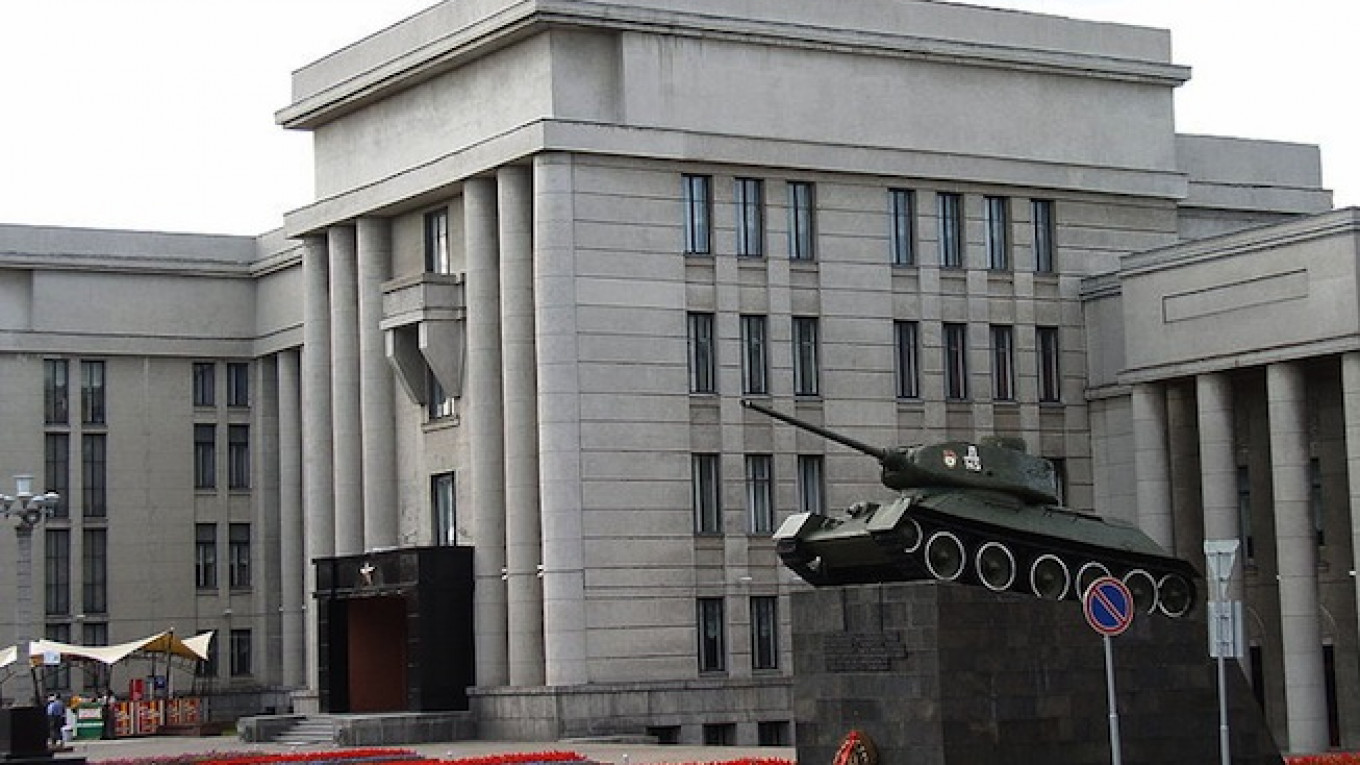Belarus has adopted a new law that states the appearance of any foreign fighters on its territory will be viewed as an act of aggression, even if they cannot be identified as regular troops.
The legislation, which takes effect on Feb. 1, seems to be Minsk's response to Russia's actions in neighboring Ukraine, where unmarked Russian troops overran Crimea prior to its annexation last spring and where Russian fighters have led pro-Moscow-separatists in the east.
According to a copy of the law published online, Minsk will view the deployment of another nation's armed groups, irregular forces, mercenaries or regular military units in the country as a military attack, regardless of whether or not it was accompanied by a declaration of war.
The package of amendments to Belarus' law on the state of war come after repeated warnings from President Alexander Lukashenko that Russia should not meddle in his country.
Moscow has regularly cited its need to protect Russian speakers in Ukraine as a guise for its annexation of Crimea and policy in the east of the country. In apparent response, the Lukashenko administration — which had favored the Russian language for decades despite opposition criticism — has announced plans to restore instruction in Belarussian in the nation's classrooms.
Education Minister Mikhail Zhuravkov said the country would begin a process of "de-Russification" of its schools, with history and geography classes becoming the first subjects to be taught exclusively in Belarussian, the country's Belorusskiye Novosti reported Saturday.
The move marks a sharp about-face for the government of Lukashenko, who had continued praising Russian as his country's language of choice until shortly before the start of the Ukrainian political crisis that eventually led to the annexation Crimea and the violence in eastern regions.
"Belarus has a special relation with the Russian language," Lukashenko said in 2013, according to state-run BelTA news agency. "In our country, Russian is a state language. This is a principled decision."
The annexation of Crimea seems to have rearranged this principle.
After Russia sent its forces to Crimea this spring, Lukashenko denounced Ukraine's troops for "sitting like mice under a broom at their bases," telling Ukraine's Shuster Live television program: "I would be the first to go to war."
More recently, Lukashenko described Russia's behavior as "suspicious," telling the Security Council on Dec. 16 that Belarus needed to increase its defense capabilities to guard against threats from both the east and the west, according to a transcript of his remarks on his administration's website.
Three days later, the Belarussian parliament passed the latest amendments to the law on the state of war.
Defense Minister Andrei Ravkov told lawmakers that the changes had been prompted by "contemporary conditions and consideration given to the nature of existing challenges and threats," BelTA reported.
Government officials did not specifically point at Russia as a possible threat. Instead, the law says that Belarus will view an attack against any member of a Russia-led collective security agreement of former Soviet states as an attack against Belarus.
A Message from The Moscow Times:
Dear readers,
We are facing unprecedented challenges. Russia's Prosecutor General's Office has designated The Moscow Times as an "undesirable" organization, criminalizing our work and putting our staff at risk of prosecution. This follows our earlier unjust labeling as a "foreign agent."
These actions are direct attempts to silence independent journalism in Russia. The authorities claim our work "discredits the decisions of the Russian leadership." We see things differently: we strive to provide accurate, unbiased reporting on Russia.
We, the journalists of The Moscow Times, refuse to be silenced. But to continue our work, we need your help.
Your support, no matter how small, makes a world of difference. If you can, please support us monthly starting from just $2. It's quick to set up, and every contribution makes a significant impact.
By supporting The Moscow Times, you're defending open, independent journalism in the face of repression. Thank you for standing with us.
Remind me later.


